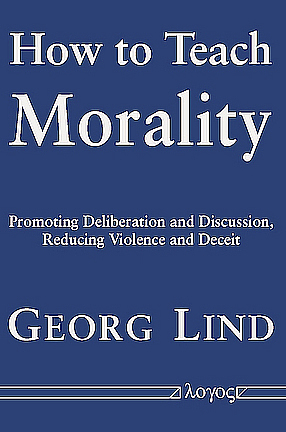Registration | Home | Program | Dates | Travel Info
Invitation to the 10th International Anniversary Symposium
Moral Competence:
Speaking, Listening, and Democracy
Date, Location
August 4th, 10:00 a.m. to August 5th, 1:00 p.m., 2016
Topic & Aim
Democracy requires "engagement in reasoning about a subject on which it is ... very difficult to
speak."
Amartya Sen
The idea of justice, 2009, p. 4
Thank you, reviewers:
Demetriou, Jolana, Czech Republic
Gafsi, Hatem, Tunesia
Gielen, Uwe, USA
Kang, Lei, China
Link, Frauke, Germany
Meyer, Helga, Germany
Moreno, Cristina, Mexico
Nowak, Ewa, Poland/USA
Oymanns, Sabine, Germany
Popescu, Beatrice. Romania/UK
Quitz, Andrea, Germany
Schillinger, Marcia, Germany
Stastna, Kamila, Czech Republic
Wunder, Klaus, Switzerland
Democracy can survive and florish only if its citizens are able to solve conflicts and problems through speaking and listen to others rather than through the use of violence, deceit and coercion. In other words, democracy can prevail only if all its members develop moral-democratic competence or become, as the political scientist Benjamin Barber says, a strong democrat:
" 'I will listen' means to the strong democrat not that I will scan my adversary's position for weaknesses and potential trade-offs, nor even (as a minimalist might think) that I will tolerantly permit him to say whatever he chooses. It means, rather, 'I will put myself in his place, I will try to understand, I will strain to hear what makes us alike. I will listen for a common rhetoric evocative of a common purpose or a common good.' " (Barber 1984, Strong democracy: Participatory politics for a new age, p. 175).
The only thing I want to add is: A strong democrat is also someone who has learned to speak up and raise issues in reasonable way, rather than through violence and force.
The symposium will bring together international scholars and educational practitioners who are interested in the development and education of moral competence.
Final symposium program (access: user = "kmdd kurs", password = "kohlberg"). Here you will find the presentation abstracts if available.
Those interested in learning how to foster moral competence effectively, can also register for the KMDD-workshop-seminar which starts before, and includes, the symposium (Aug. 1 - 5, 2016).
Please register and pay the fee in time. Otherwise we cannot put you on the program.
Your registration will be confirmed through e-mail on July 5th, or later if you register later.
Later registration for the symposium is possible until July 20th, 2016, but does not count toward the minimum participation rate for the event.
€ 50,00 for all participants, except for fully-paying participants of the KMDD workshop (their fee includes the symposium). Students and professors of the University of Konstanz are also free.
Please write me for the bank account information: georg.lind [ät] uni-konstanz.de
If money transfer is too difficult, you can ask to pay on arrival in cash.
Fees will not be refunded after start of the symposium.
Accommodation
Please book accommodation as early as possible! (If necessary, cancel in time later.)
Konstanz is a beautiful city, surrounded by an inviting country-side (Lake of Constance, Swiss Alps, mediaeval monasteries and castles etc.), all easily accessible by public transportation (bus, train, ship). Switzerland, Austria, France, and Italy are nearby. See List of recommended hotels & maps.
Accommodation can be found through Konstanz Tourist Information and the university's hotel list.
Nearby Airports with train connection to Konstanz in hours: Zürich (1 hr), Basel (1,5 hr), Friedrichshafen (1 hr), Frankfurt (4 hrs), Munich (4 hrs.)
Recommended reading

(July 2016, Logos Publisher, Berlin)
Particularly welcome are proposals for papers which specifically address the topic of this symposium: Speaking, Listening, and Democracy.
For your inspiration we have compiled some ideas for studies on moral competence and references for such studies.
Your paper may already be published. The proposal can also be on research in progress.
The author does need to be an expert of experimental psychology but should demonstrate basic scientific virtues:
- Moral competence, the central concept of the symposium should be used as defined (see glossary). Of course, it can be critically discussed.
- Dual-Aspect-Theory: In your presentation you should distinguish clearly between moral competence and moral orientation (and the respective synonyms).
- Ownership: The authors should speak about the core hypothesis and findings in her or his own voice.
- Findings: The authors should depict their findings in descriptive statistics (sample size, mean values, correlations, relative and absolute effect size), simple graphs and clear language.
For more help see the paper: The art of experimental psychology (Lind).
The proposal must contain
- Name of the author(s)
- Institutional affiliation, town and country
- Postal address
- Title of the proposal
- Proposal (not more than 500 words) with references, tables and graphs (not counted)
- Elements of the proposal: research question, definition of core concepts, directly related research, design, procedure, (expected) findings, discussion, conclusion, references. Optional: tables, graphs, pictures.
- the proposal must be submitted in electronic form (PDF, Word 2003, WordPerfect) to georg.lind [ät] uni-konstanz.de
- preference for presentation: normal paper (30 minutes) or short paper (15 minutes).
The proposal must be submitted as soon as possible but not later than the deadline to Georg.Lind [ät] uni-konstanz.de. You will get a receipt as soon as possible. You can also turn on the 'return receipt' option in your mailing program.
All proposals will be submitted to an open review process, that is, the author(s) receive feedback and can discuss with the reviewer(s).
Publication: We plan to publish a reader with papers written on the basis of this presentation.
- (new: April 30, 2016 Deadline for submission of proposals closed !)
- new: May 30, 2016 Notification of acceptance
- June 30, 2016, Deadline for registration for Symposium & Workshop.(Later registration is possible but does not count toward the minimun participation rate for the events!)
- Registration will be confirmed within 5 days.